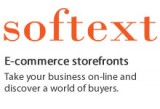In his recent article, Will Byrne focused on the power of civic organizations and community members to effect social change by flexing their collective muscle in the marketplace. The piece challenged those of us in the social sector to use our market power to effect positive change in critical areas including environment, education, and fair trade, among others. The good news is that the concepts behind civic consumption have actually reached far beyond the social sector, deeper into traditional industries.
Although, thanks to the power of the social sector, the idea of building a customer-focused brand is not new, today’s customer has a much more nuanced set of concerns that they are looking to address with their purchasing power. In addition to low price and high quality, today’s consumer wants to know how the goods are sourced, whether the manufacturer was fair to labor, what the environmental footprint is, and if the company is a good corporate citizen. The social sector has driven the cause of consumer consciousness to a level that is unprecedented, and very healthy for the marketplace and for the world.
Civic consumption takes this one step further, allowing those conscious consumers to band together their purchasing power and leverage that demand to ensure producers provide socially and environmentally beneficial goods and services at competitive prices. Examples of this exist across the economy, but if civic consumption is to grow, two pieces of fundamental infrastructure will have to be in place in order to ensure traction.
Consistent Evaluation
Initiatives to label products based on their social impact (such as Fair Trade products) or environmental impact (such as Energy Star appliance labels) have heightened public awareness of the associated issues, but have also spawned “greenwashing,” or false claims of sustainability by advertisers. When civic consumers are making their purchasing decisions, they need a way to accurately assess each product, or the hoped-for impact of civic consumption will become the victim of advertising spin.
Customer Feedback Loops
From a business perspective, civic consumption creates a committed and loyal customer base that shares a given set of values. Businesses that are trying to harness the full power of civic consumption will be wise to develop a feedback loop so that they can best understand in advance what consumer priorities are for their products and services.
Traditional businesses that ignore the growing strength of civic consumption will do so at their peril. Today’s technologies make it ever easier for consumers to join together to make major shifts in demand based on their values; companies that lose these customers will do so en masse. Organizations that will survive and thrive in a civic consumption economy will be increasingly hybrid organizations: using market-driven models to serve social missions, aligning with and prioritizing this new set of civic consumption priorities.
I have been running an organization called First Book for 20 years that has increasingly focused on harnessing the power of the base of the pyramid in the United States, and unifying these consumers and creating social change. More than 95 million books later, I can attest that this approach not only delivers on the goals of the participants, but can also effect far-reaching change in individual businesses, industries, and ultimately, the economy. One of our programs, The First Book Marketplace, illustrates that the civic consumption movement provides benefits to those who participate as well as whole industries, and can create transformative change for the economy in two major ways:
Lower prices and higher quality
For generations, publishers have been held hostage by the design of the industry. The standard industry model has meant that retail book prices must reflect not only the cost of goods and production, but also the significant uncertainties of a market where millions of books will be returned. For this reason, the book industry does not generally penetrate below the highest 10% to 15% of the socio-economic ladder. By aggregating a set of new consumers and purchasing on a non-returnable basis, the First Book Marketplace removes the inherent risk of the market and allows access to those who would never be able to pay normal retail prices.
Content and market expansion
In the past, the publishing industry lacked the means to develop content to reach the consumers beyond the mainstream retail book market, the millions of families termed poor or near poor. By offering access to this new market, First Book gives the publishers the economic confidence to step into content that is relevant to these untapped markets and critical to capturing the imaginations of kids living there. The result will be richer content for all kids and it will also help publishers meet the needs of a broader and ultimately global market.
The media abounds with stories of corporations large and small that, either by design or due to market pressure, have prioritized short-term revenues over all else. The pressure of this traditional corporate model has resulted in environmental and societal impacts that threaten our economy as well as our civil society.
The rise of civic consumption will not only push businesses that are stuck in traditional thinking, it will also promote the development of hybrid companies that will thrive in the civic consumption marketplace. Consumers are looking for a reordering of corporate priorities that is real and lasting, and the economy needs this kind of dynamic change.
![]()




